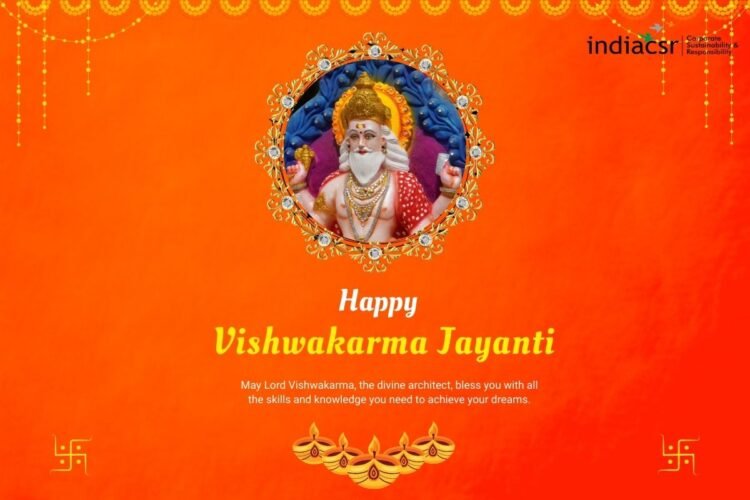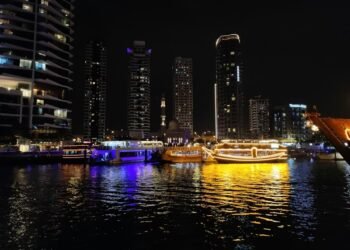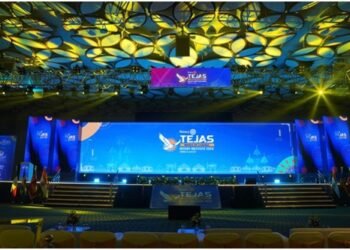Vishwakarma Jayanti 2025: Vishwakarma Jayanti is a festival that honors Lord Vishwakarma, the first architect and creator of the universe. He is the son of Lord Brahma, the creator of the universe, and the divine carpenter who crafted the tools and machines used by the gods. He is also the patron deity of artisans, craftsmen, engineers and workers. Vishwakarma Jayanti is celebrated on the last day of the month of Bhadrapada, which usually falls in September according to the Gregorian calendar. In 2025, Vishwakarma Jayanti will be celebrated on Wednesday, September 17.
History and Significance of Vishwakarma Jayanti
Vishwakarma Jayanti has its origins in the ancient Hindu scriptures, especially the Rigveda, which contains the earliest references to Vishwakarma. He is regarded as the master builder of the universe, who designed and constructed many marvelous structures and devices for the gods. Some of his notable creations include:
- The Trishul (trident) of Lord Shiva, the Sudarshana Chakra (discus) of Lord Vishnu, and the Vajra (thunderbolt) of Lord Indra.
- The Pushpaka Vimana (flying chariot) of Ravana, the king of Lanka, and the Maya Sabha (hall of illusions) of the Pandavas.
- The city of Dwarka, the kingdom of Lord Krishna, and the city of Hastinapura, the capital of the Kauravas and Pandavas.
- The Swarga Loka (heavenly abode) of Lord Indra, and the Sone ki Lanka (golden Lanka) of Ravana.
Vishwakarma Jayanti is a day to celebrate the skills and talents of Vishwakarma and his devotees. It is an occasion to worship him and seek his blessings for success, innovation and prosperity in various fields of work. It is also a day to acknowledge and appreciate the contributions of artisans, craftsmen, engineers and workers to the society and culture.
Rituals and Celebrations of Vishwakarma Jayanti
Vishwakarma Jayanti is celebrated with great devotion and enthusiasm across India. The rituals and celebrations vary from region to region, but some common practices include:
- Taking a holy bath in the morning and wearing new clothes.
- Performing a special puja at home or workplace, where an idol or picture of Vishwakarma is installed and decorated with flowers, fruits, sweets and other offerings.
- Worshipping the tools, machines, vehicles and other equipment used in work, and applying vermilion (sindoor) or turmeric (haldi) on them as a mark of respect.
- Offering prayers to Vishwakarma’s vehicle, the elephant, which symbolizes strength and wisdom.
- Distributing prasad (sacred food) among family members, friends, colleagues and workers.
- Organizing a bhandara (community feast) or a langar (free meal service) for the poor and needy people.
- Participating in cultural programs, such as singing songs, reciting poems or performing dances dedicated to Vishwakarma.
- Exchanging greetings and wishes with each other.
In some states of eastern India, such as West Bengal, Odisha, Tripura and Jharkhand, Vishwakarma Jayanti is also known as Biswakarma Puja or Kanya Sankranti. On this day, people also observe a fast and worship Goddess Durga as Kanya Kumari (the virgin goddess). They also fly colorful kites in the sky as a symbol of joy and freedom.
Vishwakarma Jayanti is a festival that celebrates the spirit of creativity and craftsmanship. It is a day to honor Vishwakarma as the divine architect of the universe and to seek his guidance and grace for excellence in work. It is also a day to express gratitude and respect to all those who work hard to make our lives comfortable and beautiful.
Also Read:






















